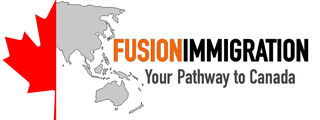Canada is one of the best places to study in the world. According to new research from financial services provider Remitly, Canada is the most desirable country for international students looking to further their education.
Canada is home to some of the world’s top universities. In fact, 30 Canadian institutions are counted among the best in the world, according to Times Higher Education’s World University Rankings 2021.
There are many advantages of getting your education in Canada. One of of which is the opportunity to get permanent residence after you graduate. To work in Canada after you graduate, you need a work permit. The work experience you gain while working may help you qualify for permanent residence.
The Post-Graduation Work Permit (PGWP) Program allows students who have graduated from eligible Canadian designated learning institutions (DLIs) to obtain an open work permit to gain valuable Canadian work experience.
Eligibility
To obtain a post-graduation work permit, the applicant must currently hold valid temporary status or have left Canada. They must have graduated from a DLI. They must also submit clear evidence that they meet all of the following criteria:
- They have completed an academic, vocational or professional training program at an eligible institution in Canada that is at least 8 months long leading to a degree, diploma or certificate.
- They have maintained full-time status in Canada full-time student status in Canada during each academic session of the program or programs of study they have completed and submitted as part of their post-graduation work permit application.
- They have received a transcript and an official letter from the eligible DLI confirming that they have met the requirements to complete their program of study.
Eligible programs and institutions
The applicant must provide evidence that the program or programs of study were taken in Canada at one of the following eligible Canadian designated learning institutions (DLIs):
- a public post-secondary institution, such as
- a college
- a trade or technical school
- a university
- CEGEP (in Quebec)
- a private post-secondary institution that operates under the same rules and regulations as public institutions in Quebec
- a private or public secondary or post-secondary institution in Quebec offering qualifying programs of 900 hours or longer leading to
- a diploma of vocational studies (DVS)
- an attestation of vocational specialization (AVS)
- a Canadian, private institution authorized by provincial statute to confer degrees, such as an associate, bachelor’s, master’s or doctoral degree, but only if the student is enrolled in a program of study leading to a degree, as authorized by the province, which may not include all programs of study offered by the private institution
Determining the length of the post-graduation work permit
| Length of the program or programs of study, including Quebec vocational programs with a diploma of college studies (DCS) and an attestation of college studies (ACS) | Length of Quebec vocational programs with a diploma of vocational studies (DVS) or attestation of vocational specialization (AVS) | Length of the post-graduation work permit that can be issued |
|---|---|---|
| The program of study is at least 8 months and less than 2 years. | The vocational program of study is at least 900 hours and less than 1,800 hours. | The length of the work permit should coincide with the length of the program, as confirmed by the eligible DLI in the written confirmation of program completion (such as an official letter of completion or transcript).
Regularly scheduled breaks (for example, regularly scheduled winter and summer breaks) should not be subtracted from the length of the post-graduation work permit. Note: For graduates with a DVS or AVS, a prorated calculation may be performed to determine the work permit length. Each additional 112 hours of an authorized program of study provides the applicant with an additional 1 month of work permit access. Officers should round up to the next full month. Note: Officers may issue 3‑year post-graduation work permits to individuals who complete a master’s or doctoral degree in Canada when the eligible DLI has confirmed in the written confirmation of program completion that the degree is 16 to 23 months in length, and does not include regularly scheduled breaks. |
| The program of study is 2 years or longer. | The vocational program of study is 1,800 hours or longer. | If the length of the program is confirmed by the eligible DLI in the written confirmation of program completion (such as an official letter or transcript), the length of the work permit should be 3 years.
Regularly scheduled breaks (for example, regularly scheduled winter and summer breaks) should not be subtracted from the length of the post-graduation work permit. |
| The student completed more than one program from an eligible DLI within 2 years.
Note: Each program of study must meet all PGWPP eligibility requirements and be at least 8 months in length. |
The student completed more than one DVS or a DVS and an AVS from an eligible DLI within 2 years.
The DVS program must be at least 900 hours in length. The AVS program can be less than 900 hours in length, if submitted in combination with a DVS. |
The length of the work permit should combine the length of each program.
If the combined length of the programs is 2 years or longer (or 1,800 hours or longer for a combination of a DVS with an AVS in Quebec), the work permit may be valid for up to 3 years (provided that the DVS program in Quebec is at least 900 hours in length). |
Please note that information may change from time to time. Contact me updates and discuss you eligibility for Post Graduation Work Permit.
